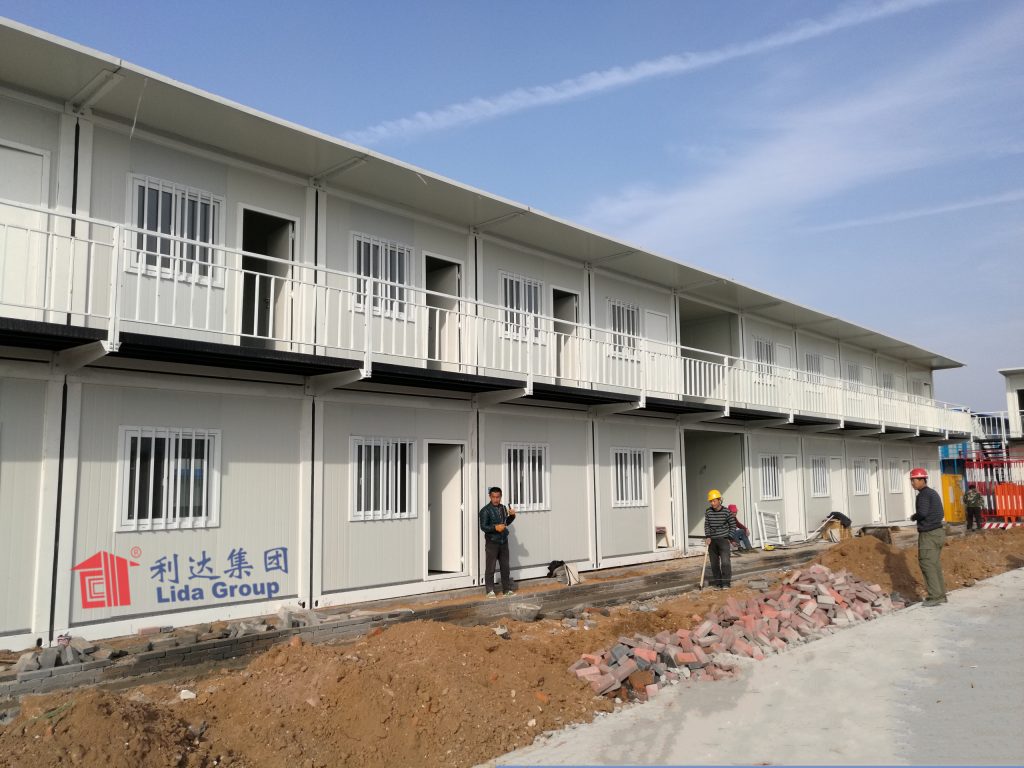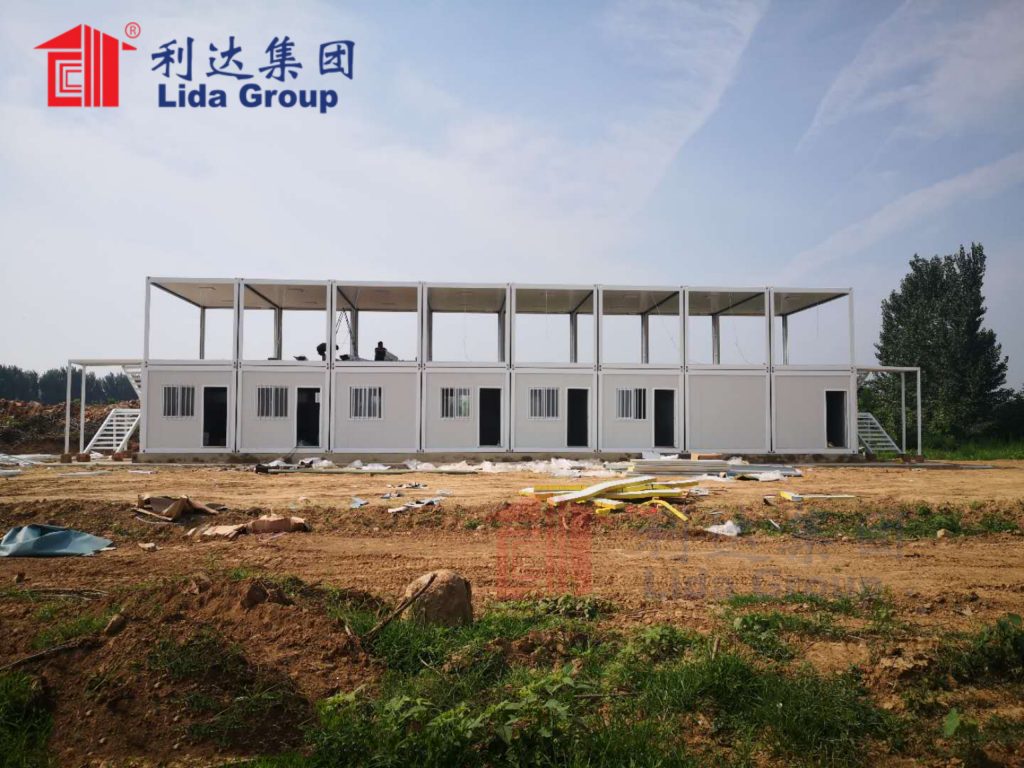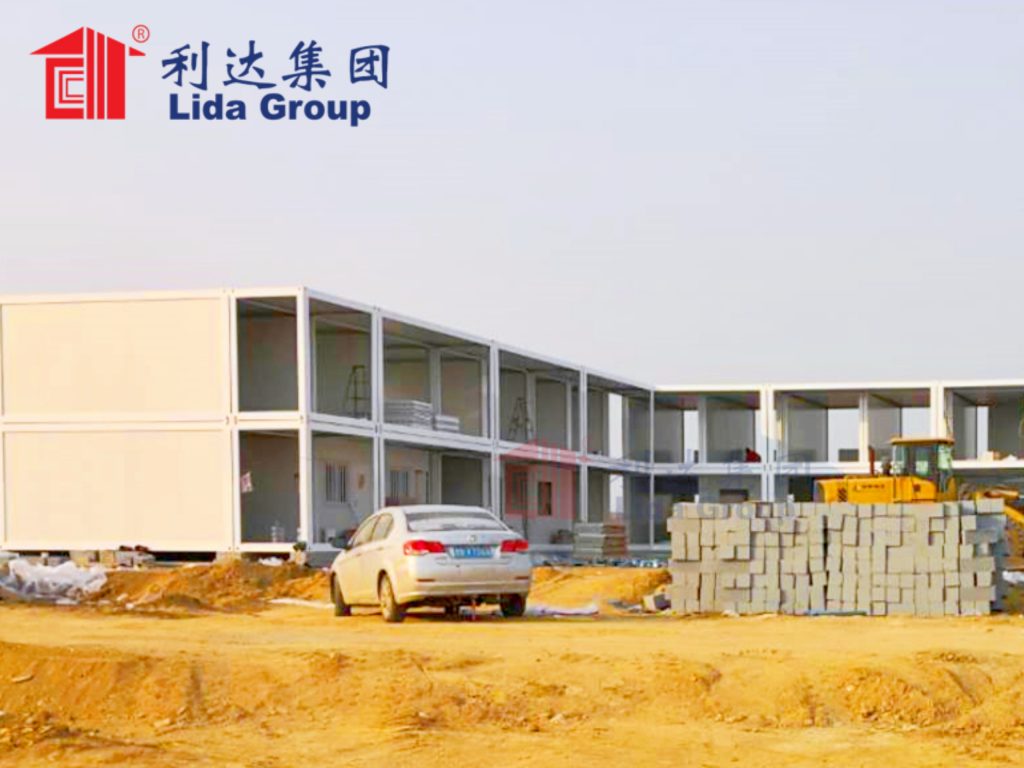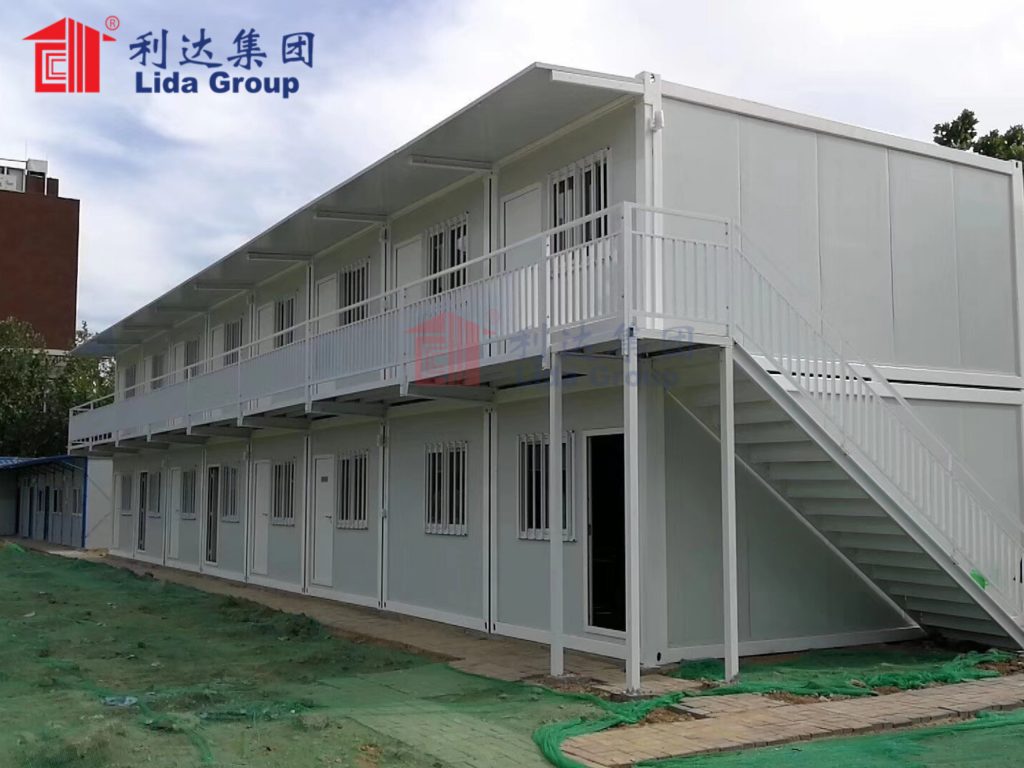A leading public health non-profit organization has announced plans to partner with Chinese construction firm Lida Group on pilot projects testing mobile modular camps featuring prefabricated sanitation facilities built using stacked shipping container components. The initiative aims to evaluate innovative approaches for rapidly deployable hygiene and washrooms needed in emergency response and resource development projects globally.
World Health Management (WHM), a Geneva-based organization coordinating health services in humanitarian and development contexts, will work with Lida Group to develop and field test prototype camp setups integrating stackable sanitation units. Traditional portable toilets and basic wash facilities currently used for transitory worksites or relief camps have difficulties meeting scale demands and pose maintenance issues according to WHM leadership.
“Our work brings us into areas lacking infrastructure where basic sanitation is a high priority need, whether after disasters or where new construction projects are underway. Having prefabricated units that can rapidly assemble complete hygienic facilities would improve conditions and reduce health risks,” said WHM Director of Operations Jacqueline Andre. Through the pilots, WHM aims gaining field validation of container-based solutions’ performance and operational suitability.

For its part, Lida Group brings extensive experience designing modular construction systems using standard shipping containers as building blocks. Its prefabricated housing, classrooms, and temporary offices have utilized basic container stacking techniques. However, sanitation facilities present unique programming and installation challenges according to company R&D Manager George.
“Toilets, showers, and laundry need very specific plumbing, ventilation, and accessibility. Public use also demands higher durability and easiness to clean compared to occupied spaces. Our engineering team is developing specialized container module designs optimized for these functions,” George explained. Initial prototypes pair basic toilet cubicles with ablution units combining sinks, mirrors and shelving.
Structurally, prototype sanitation container modules measure 8 feet wide by either 20 or 40 feet in length to facilitate single or multiple stacking on-site. Corrugated galvanized steel exteriors provide weatherproofing suitable for all climate extremes expected in WHM deployment regions. Interiors feature water resistant composite wall and floor panels with no exposed materials permitting easy disinfection.

All plumbing, electrical, and ventilation systems are preinstalled at Lida Group’s factories. Toilet modules connect directly to pre-plumbed septic or drain lines running within interstitial spaces formed when multiple units stack. Hot water on-demand, touchless faucets, no-touch fixtures, and automatic paper towel dispensers promote hygienic use. Natural lighting and exhaust vents further enhance user experience.
Testing various sewage handling options is also a pilot focus. Self-contained composting toilets avoiding drainage network needs will be explored. Additional prototypes integrate maceration pump systems compacting waste for portable storage prior to treatment or disposal. Solar panels may power pumps, lights and fans for remote areas. Lida Group aims achieving off-grid completely self-sustaining lavatory stations.
Mobile prefabricated camps using container module stacking offer turnkey plug-and-play installation according to Lida Group designs. Arriving flat-packed, units assemble within hours using on-board lifting lugs, integrated connectors and simple hand tools. Prefabricated concrete or compacted gravel foundations complete plumbing connections underground prior to setup. Additional units add capacity efficiently alongside standard container office, housing or kitchen modules as camp populations grow.

Entire preassembled camps are transportable fully intact when relocated between project sites as well. Rigid secure stacking allows units stacking up to 3 containers high for dense urban or small footprint situations. Mezzanine levels internally connected facilitate multi-story layouts. According to Andre, stacking maximizes space utilization crucial for transitory camps hosting hundreds or thousands of residents or workers.
The first pilot deployment is scheduled within six months for a major road construction project in rural Tanzania organized through a WHM partnership. Housing 500 migrant work crews, the camp will test a configuration of stacked office, housing, kitchen and sanitation container modules. WHM field staff will monitor functionality, user satisfaction, and maintenance or repairs needed over the projected 9-month construction period.
Additional pilots are in discussion with mineral extraction, agricultural development and disaster relief organizations enabling data collection from varied climates and deployment scenarios. WHM aims demonstrating the design concept meets rigorous hygiene standards for permitted portable washroom facilities. With WHO Endorsed certifications, the container units could launch commercially worldwide through approved builders and contractors.

If pilots prove successful. WHM foresees strong market potential for prefabricated modular sanitation stations helping combat disease in informal settlements, refugee camps and other contexts where basic hygiene remains an urgent challenge. The mobile compact design addresses portability and rapid scale-up needs better than conventional portable toilets according to Andre. Lida Group manufacturing capabilities envision scaling annual production into the thousands of units.
Standardized modular construction using shipping containers is not a new concept. However, incorporating highly specialized sanitation fixtures and fluid handling systems into preassembled stackable components presents an innovative application. Successful pilots could open many new possibilities according to Lida Group manager George Wang.
“Portable schools, medical clinics, water filtration units – with container module designs optimized for key functions, almost any facility can be rapidly deployed prefabricated. We’re excited to prove concepts through WHM’s real-world projects benefitting communities urgently needing basic services,” George Wang said. If testing verifies code compliance and user acceptance, containerized prefab sanitation units have potential to set new standards for global public health infrastructure deployment.

Related news
-
Lida Group pilot tests prototype vertical livestock steel structural building system integrating rooftop apiaries to broaden commercial opportunities for independent multi-generational cattle and sheep operations.
2024-05-20 17:08:40
-
Lida Group develops standardized modular container house system for rapid deployment of transitional housing communities in disaster impacted regions.
2024-05-21 14:35:37
-
Lida Group signs joint venture partnership to mass produce standardized steel structured modules for turnkey aquaculture facilities such as inland shrimp farms requiring corrosion-resistant noncombustible construction.
2024-05-20 13:48:39
contact us
- Tel: +86-532-88966982
- Whatsapp: +86-13793209022
- E-mail: sales@lidajituan.com


